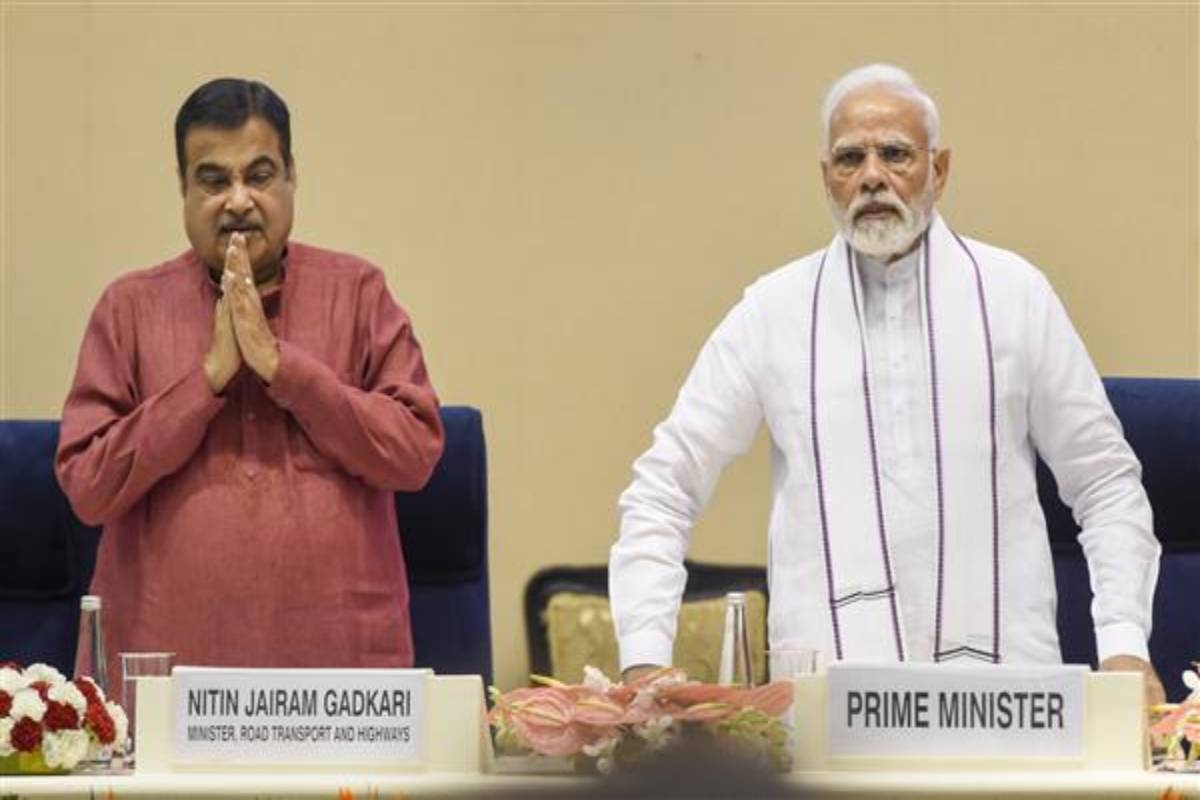Union Cabinet approves India-UAE pact on economic corridor
The aim of the IGFA is to enhance the bilateral relations and to further strengthen the relations between the two countries in the ports, maritime and logistics sectors.
The policy also clearly lays down an action agenda for the immediate on-ground implementation of various initiatives.

Union Cabinet approves national logistics policy
The Union Cabinet, chaired by Prime Minister Narendra Modi, today approved the National Logistics Policy which lays down an overarching interdisciplinary, cross-sectoral, multi-jurisdictional, and comprehensive policy framework for the logistics sector.
The policy complements the PM GatiShakti National Master Plan. While the PM GatiShakti National Master Plan is aimed at integrated infrastructure development, the National Logistics Policy is envisaged to bring efficiency in logistics services, and human resources through streamlining processes, regulatory framework, skill development, mainstreaming logistics in higher education, and adoption of suitable technologies.
The vision is to develop a technologically enabled, integrated, cost-efficient, resilient, sustainable, and trusted logistics ecosystem for accelerated and inclusive growth.
Advertisement
The policy sets targets and includes a detailed action plan to achieve them. It aims to: reduce the cost of logistics in India to be comparable to global benchmarks by 2030, improve the Logistics Performance Index ranking to be among the top 25 countries by 2030, and create a data-driven decision support mechanism for an efficient logistics ecosystem.
The National Logistics Policy has been developed through a consultative process wherein several rounds of consultations were held with various ministries/departments of the Government of India, industry stakeholders, and academia, and takes cognizance of global best practices.
To monitor the implementation of the policy and integrate efforts across stakeholders, the Policy will utilise the existing institutional framework i.e., the Empowered Group of Secretaries (EGoS) created under the PM GatiShakti NMP.
The EGoS will also set up a “Services Improvement Group” (SIG) on the pattern of the Network Planning Group (NPG) for monitoring of parameters pertaining to processes, regulatory and digital improvements in the logistics sector.
This policy paves the way for a reduction in the logistics cost in the country. The focus will be on enabling adequate development of warehouses with optimal spatial planning, promotion of standards, digitization and automation across the logistics value chain, and better track and trace mechanisms.
Further measures to facilitate seamless coordination between different stakeholders and speedy issue resolution, streamlined EXIM processes, and human resource development to create an employable pool of skilled manpower, are also laid out in the policy.
The policy also clearly lays down an action agenda for the immediate on-ground implementation of various initiatives.
All states and Union Territories have been fully onboarded. Fourteen States have already developed their respective State Logistics Policies along the lines of the National Logistics Policy and for 13 States, it is in the draft stage. The institutional frameworks under the PM GatiShakti at the Centre and the state level, which will also monitor the implementation of the Policy, are fully operational. This will ensure fast and effective adoption of the Policy across all stakeholders.
Advertisement